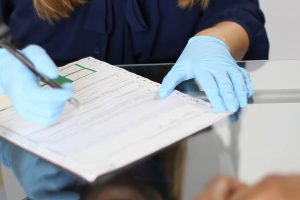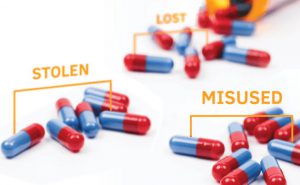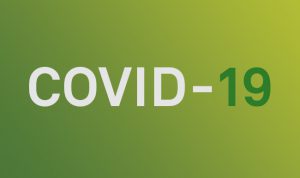The Federal Custody and Control Form (CCF) is the 5-part document used for drug test ordering, specimen collection processing, specimen, external chain of custody documentation, results reporting and documentation of Medical Review Officer (MRO) review for federally regulated (e.g., U.S. Department of Transportation (DOT), U.S. Nuclear Regulatory Commission (NRC), and the U.S. Department of Health and Human Services (HHS)) workforce drug testing. It details the required information according to the government’s Mandatory Guidelines for Federal Workplace Drug Testing Programs. Each of the 5 parties in the drug testing process receive a copy of the CCF: test facility, MRO, collector, employer, and donor. The CCF provides accountability and helps to ensure a complete, legally defensible drug test.
Process to revise the Federal CCF for workforce drug testing
The Paperwork Reduction Act mandates that ‘information collection’ activities (e.g., the Federal CCF) receive Office of Management and Budget (OMB) approval. Such approval expires after 3 years. In addition, when the Substance Abuse and Mental Health Services Administration (SAMSHA) needs to update the CCF – e.g., adding or removing drug analytes or modifying the language or layout of the form – they are required to seek approval from OMB for the changes, publish a Notice seeking public comments about the proposed form changes, and obtain formal approval from the OMB for a final version before it’s deployed.
Comment request for Federal CCF revisions
Most recently, OMB requested comments for SAMHSA’s proposed revisions to the Federal CCF. In addition to renewal for another 3 years, SAMSHA is, most significantly, revising the form for the inclusion of oral fluid as an authorized drug test specimen type. Additional changes include adding the donor’s email, CDL state and number, and removing drug analytes from the results section. Quest has submitted comments about these suggested form changes and SAMSHA/OMB will consider all remarks in its decision-making process to finalize the form. We will communicate with clients when the agency announces its approval of a new Federal CCF.
See the proposed new Federal CCF draft and lab-impacting document drafts.
As a note, oral fluid drug testing is approved by HHS for employee testing, but it is not approved for DOT or NRC testing. Implementation of the oral fluid guidelines has been estimated to take 12 to 18 months from their initial effective date of January 1, 2020 and a laboratory must obtain SAMHSA certification prior to conducting any federal oral fluid drug testing. The revised Federal CCF is designed with consideration for the future use of oral fluid.
Update: OMB approved the revised Federal Drug Testing Custody and Control Form (CCF) on August 17, 2020. In addition, the previous version of the CCF (the CCF without the four new analytes – oxycodone, oxymorphone, hydrocodone, and hydromorphone – listed in Step 5A) is authorized for use until August 30, 2021. Learn more.
Quest prepares for new Federal CCF
Although the current Federal CCF expiration date is August 31, 2020, based on past experience with the previous 2 form revisions, we anticipate a one-year implementation period. If an employer does not use the new Federal CCF after the implementation period, a memorandum for record (MFR) must be included when an older version of the Federal CCF is used.
Quest will help guide our regulated clients in their transitions to the new Federal CCF. We are preparing for the upcoming change with vendors and our supply team specialists are analyzing inventory and form usage by account. Additionally, all Quest Diagnostics drug test collectors will be trained on how to properly complete a drug test using the new Federal CCF.
Eliminate the hassles of paper forms
Switching to the electronic Custody and Control Form (eCCF) ensures that your organization is always using the most current Federal CCF. Along with less paperwork to manage, eCCF offers fewer errors, real-time statuses, faster results, and improved overall efficiency.
Watch our Flip the switch: why you should turn on digital drug testing webinar to learn more about the value of adopting paperless solutions for drug testing.
For more information about drug testing, contact us online or visit our website.
Photo source: Office of Management and Budget, www.reginfo.gov
Blog updated August 19, 2020
 Your Privacy Choices
|
Privacy Notices
|
Terms
|
Language Assistance / Non-Discrimination Notice | Asistencia de Idiomas / Aviso de no Discriminación | 語言協助 / 不䈚視通知
Your Privacy Choices
|
Privacy Notices
|
Terms
|
Language Assistance / Non-Discrimination Notice | Asistencia de Idiomas / Aviso de no Discriminación | 語言協助 / 不䈚視通知



















The Federal Custody and Control Form (CCF) is the 5-part document used for drug test ordering, specimen collection processing, specimen, external chain of custody documentation, results reporting and documentation of Medical Review Officer (MRO) review for federally regulated (e.g., U.S. Department of Transportation (DOT), U.S. Nuclear Regulatory Commission (NRC), and the U.S. Department of Health and Human Services (HHS)) workforce drug testing. It details the required information according to the government’s Mandatory Guidelines for Federal Workplace Drug Testing Programs. Each of the 5 parties in the drug testing process receive a copy of the CCF: test facility, MRO, collector, employer, and donor. The CCF provides accountability and helps to ensure a complete, legally defensible drug test.
Process to revise the Federal CCF for workforce drug testing
The Paperwork Reduction Act mandates that ‘information collection’ activities (e.g., the Federal CCF) receive Office of Management and Budget (OMB) approval. Such approval expires after 3 years. In addition, when the Substance Abuse and Mental Health Services Administration (SAMSHA) needs to update the CCF – e.g., adding or removing drug analytes or modifying the language or layout of the form – they are required to seek approval from OMB for the changes, publish a Notice seeking public comments about the proposed form changes, and obtain formal approval from the OMB for a final version before it’s deployed.
Comment request for Federal CCF revisions
Most recently, OMB requested comments for SAMHSA’s proposed revisions to the Federal CCF. In addition to renewal for another 3 years, SAMSHA is, most significantly, revising the form for the inclusion of oral fluid as an authorized drug test specimen type. Additional changes include adding the donor’s email, CDL state and number, and removing drug analytes from the results section. Quest has submitted comments about these suggested form changes and SAMSHA/OMB will consider all remarks in its decision-making process to finalize the form. We will communicate with clients when the agency announces its approval of a new Federal CCF.
See the proposed new Federal CCF draft and lab-impacting document drafts.
As a note, oral fluid drug testing is approved by HHS for employee testing, but it is not approved for DOT or NRC testing. Implementation of the oral fluid guidelines has been estimated to take 12 to 18 months from their initial effective date of January 1, 2020 and a laboratory must obtain SAMHSA certification prior to conducting any federal oral fluid drug testing. The revised Federal CCF is designed with consideration for the future use of oral fluid.
Update: OMB approved the revised Federal Drug Testing Custody and Control Form (CCF) on August 17, 2020. In addition, the previous version of the CCF (the CCF without the four new analytes – oxycodone, oxymorphone, hydrocodone, and hydromorphone – listed in Step 5A) is authorized for use until August 30, 2021. Learn more.
Quest prepares for new Federal CCF
Although the current Federal CCF expiration date is August 31, 2020, based on past experience with the previous 2 form revisions, we anticipate a one-year implementation period. If an employer does not use the new Federal CCF after the implementation period, a memorandum for record (MFR) must be included when an older version of the Federal CCF is used.
Quest will help guide our regulated clients in their transitions to the new Federal CCF. We are preparing for the upcoming change with vendors and our supply team specialists are analyzing inventory and form usage by account. Additionally, all Quest Diagnostics drug test collectors will be trained on how to properly complete a drug test using the new Federal CCF.
Eliminate the hassles of paper forms
Switching to the electronic Custody and Control Form (eCCF) ensures that your organization is always using the most current Federal CCF. Along with less paperwork to manage, eCCF offers fewer errors, real-time statuses, faster results, and improved overall efficiency.
Watch our Flip the switch: why you should turn on digital drug testing webinar to learn more about the value of adopting paperless solutions for drug testing.
For more information about drug testing, contact us online or visit our website.
Photo source: Office of Management and Budget, www.reginfo.gov
Blog updated August 19, 2020